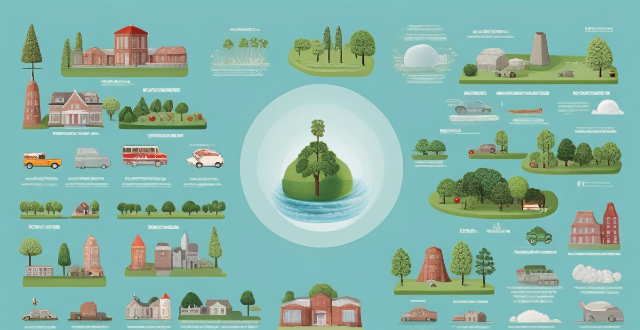Climate change is significantly impacting resource competition and international relations by altering the availability and distribution of natural resources like water, food, and energy. This results in increased competition among nations for these resources, affecting economic systems, political structures, and global stability. Water scarcity due to changing precipitation patterns is causing conflicts, especially in regions sharing rivers or aquifers. Changes in temperature and rainfall patterns are affecting food production, leading to increased import dependency and potential conflicts over limited resources. Energy resource competition is shifting towards renewables due to climate change impacts on fossil fuels. Countries are engaging in mitigation and adaptation efforts through international agreements, technology transfer, and disaster risk reduction. While climate change presents challenges, it also offers opportunities for global cooperation in addressing this common threat.

The Impact of Climate Change on Resource Competition and International Relations
Climate change has become a significant factor influencing resource competition and international relations. As the Earth's climate continues to change, it is altering the availability and distribution of natural resources, leading to increased competition among nations for these resources. This competition can have far-reaching consequences, affecting not only economic and political systems but also global security and stability.
Water Resources
Water is one of the most critical resources affected by climate change. Changes in precipitation patterns, melting glaciers, and rising sea levels are all contributing to water scarcity in many parts of the world. This scarcity is leading to increased competition for water resources, particularly in regions where multiple countries share transboundary rivers or aquifers.
Examples of Water Conflicts:
- Middle East: Countries like Israel, Jordan, and Syria rely heavily on the Jordan River for their water needs. Climate change-induced droughts are exacerbating an already tense situation, increasing the potential for conflict over water rights.
- South Asia: India and Pakistan have a long history of disputes over the Indus River system, which provides irrigation water to large areas of farmland in both countries. Climate change is expected to reduce the flow of the Indus River, further straining the relationship between these two nuclear powers.
Food Security
Climate change is also impacting food production through changes in temperature and rainfall patterns, as well as more frequent extreme weather events such as floods and droughts. These factors can lead to reduced crop yields, making it more difficult for some countries to meet their food needs domestically.
Consequences for Food Security:
- Increased Import Dependency: Countries that cannot produce enough food domestically may become more dependent on imports, which can make them vulnerable to price fluctuations and supply disruptions.
- Potential for Conflict: Competition over limited food resources can lead to tensions between nations, especially if food shortages occur simultaneously in neighboring countries with historical rivalries.
Energy Resources
The demand for energy is closely linked to economic growth and development. Climate change is affecting the availability and accessibility of energy resources, particularly fossil fuels like coal, oil, and gas.
Energy Competition Outcomes:
- Shift Toward Renewables: Some countries are investing heavily in renewable energy sources like wind and solar power to reduce their dependence on fossil fuels, which are becoming more expensive and less reliable due to climate change impacts.
- Geopolitical Tensions: Control over energy resources has long been a source of geopolitical tension. As climate change makes traditional energy sources less viable, countries may seek to secure new sources of energy or protect existing ones, potentially leading to conflicts.
Mitigation and Adaptation Efforts
In response to these challenges, countries are engaging in various mitigation and adaptation efforts aimed at reducing the impacts of climate change and preparing for its effects.
Key Areas of Cooperation:
- International Agreements: The Paris Agreement serves as a framework for global action on climate change, with countries committing to reduce greenhouse gas emissions and adapt to the changing climate.
- Technology Transfer: Developed countries are often called upon to share technologies and expertise with developing nations to help them build resilience against climate change impacts.
- Disaster Risk Reduction: Cooperation among nations is essential for preparedness and response to climate-related disasters, such as floods, hurricanes, and droughts.
Conclusion
Climate change is reshaping the landscape of resource competition and international relations by exacerbating existing tensions over water, food, and energy resources. While this presents significant challenges, it also creates opportunities for cooperation and collaboration among nations in addressing a common threat. By working together through international agreements, technology transfer, and disaster risk reduction efforts, countries can build a more resilient and equitable future in the face of climate change.